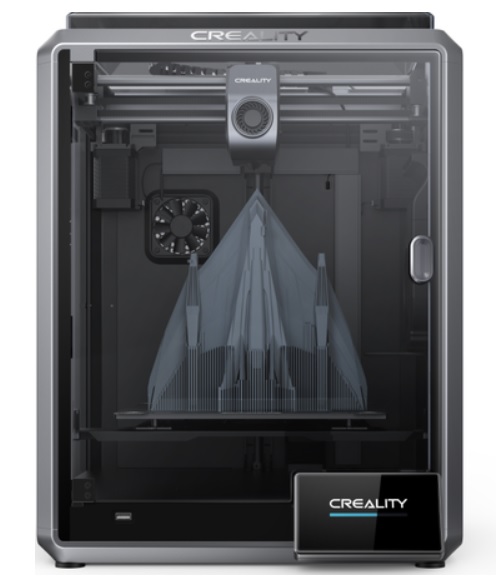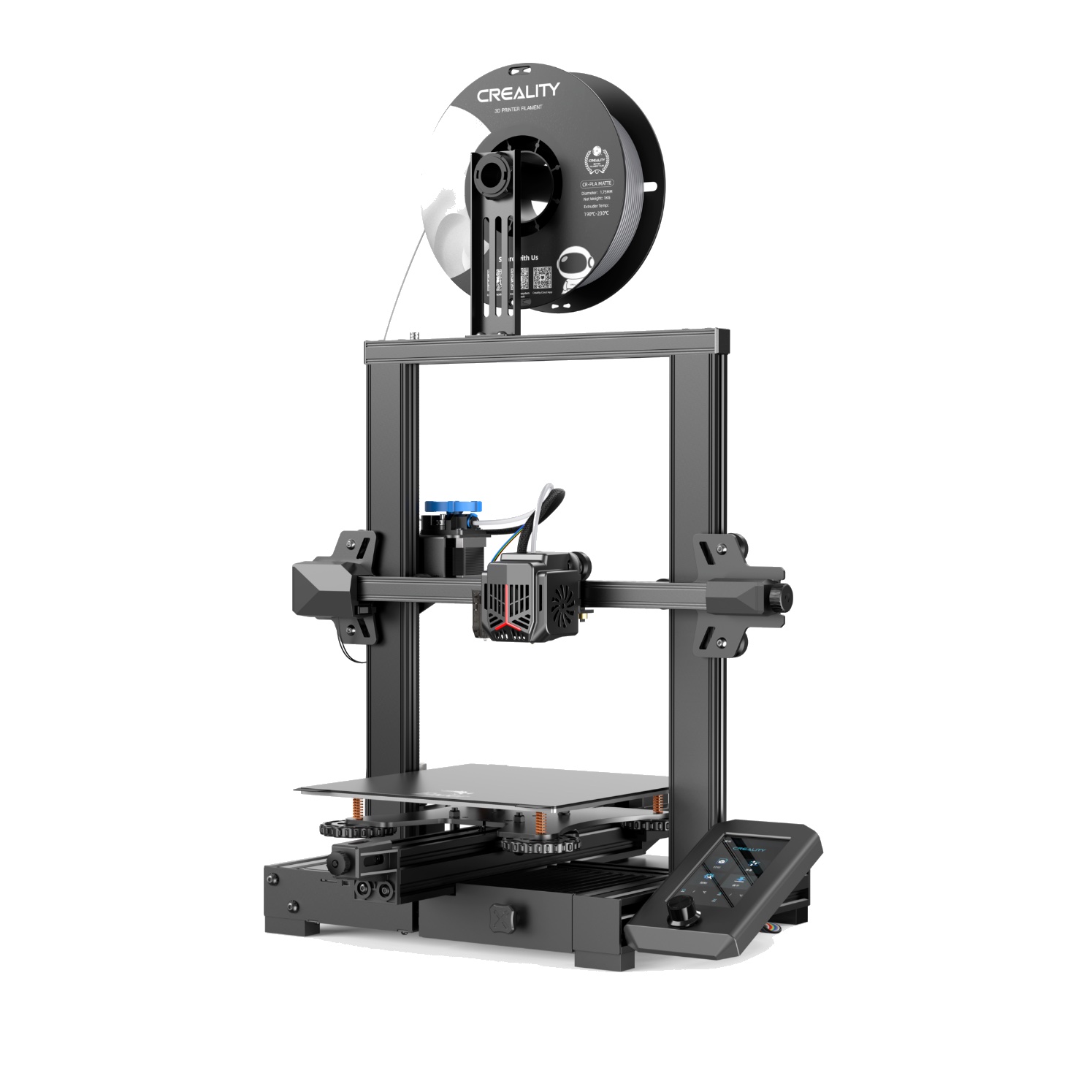Compare K1 vs Ender 3 V2 Neo
Comparison between the best 3D printers
Choose the best 3D printer at the best price. The cheapest 3D printers are here.
Buy a 3D printer here with 3D Fila.
 |
 |
|
| Model | K1[BUY K1] |
Ender 3 V2 Neo[BUY Ender 3 V2 Neo] |
| Printing Material | Filament | Filament |
| Buy Filament for Creality 3D K1 | Buy Filament forCreality 3D Ender 3 V2 Neo | |
| Estimated price | $399,00 | $310,00 |
| Manufacturer | Creality 3D | Creality 3D |
| Release Year | 2023 | 2022 |
| Print Volume [mm] | 220x220x250 | 220x220x250 |
| Printer Size [mm] | 355x355x480 | 438x424x472 |
| Weight [kg] | 12,5 | 9,8 |
| Power Loss Recovery | YES | YES |
| Enclosed printer | YES | NO |
| Bed Leveling | Automatic | Automatic |
| Filament End Sensor | YES | YES |
| Bed type | Heated | Heated |
| Power supply system | Direct Drive | Bowden |
| Standard nozzle | 0,4 | 0,4 |
| Maximum Nozzle Temperature [°C] | 300 | 260 |
| Maximum Bed Temperature [°C] | 120 | 100 |
| Maximum printing speed [mm/s] | 600 | 80 |
| Filament holder | YES | YES |
| Camera for supervision | YES | YES |
| Recommended filaments | ABS, PLA, PETG, PET, TPU, PA, ABS, ASA, PC, PLA-CF, PA-CF, PET-CF | PLA, PETG |
| Recommended slicers | Creality Print; Cura, Simplify3D e PrusaSlicer | Cura, Simplify, Slic3r, IdeaMaker |
| Maximum Resolution [mm] | 0,1 | 0,1 |
| Processor | 4.2.2 mainboard | |
| Display | Display touchscreen 4,3'' | Display touchscreen 4,3'' |
| Power Supply | 110/220V / 350W | |
| Connectivity | Ethernet / USB / Wi-Fi | SD / USB |
| Operating systems | Windows, Mac, Linux | Windows, Mac, Linux |
| Date of registration in the system | 2023-04-17 | 2022-12-09 |
| Release date | 2023 | 2022 |
| Extra features | The K1 is an extremely fast FDM 3D printer, reaching 600mm/s, 12 times faster than standard models. Equipped with a Core XY system and lightweight print head, it offers energy efficiency and high print quality. It stands out for its dual-gear extruder and quickly heated hotend, as well as dual cooling to prevent warping. Its robust structure ensures stability at high speed, with optimized software to speed up the printing process. | The Ender 3 V2 Neo printer stands out for its automatic bed leveling with the CR Touch system, ensuring high-quality initial layers. It features an all-metal Bowden extruder for increased durability and improved filament handling. Its flexible, PC-coated magnetic build plate makes it easy to remove prints and is durable and easy to clean. It also includes a new user interface with model preview and an updated gantry design. The Ender 3 V2 Neo maintains the same build volume and temperatures as the previous version, supporting popular filaments such as PLA and ABS. It features a quiet 32-bit mainboard and additional features such as a filament sensor, print recovery, simple 3-step assembly, an integrated toolbox, and belt tensioners. |
| Support for multiple colors and materials (AMS and CFS) | NO | NO |
Notes * |
||
| Cost-benefit | 7 / 10 | 6 / 10 |
| Hardware | 4.2 / 10 | 2.4 / 10 |
| Tela | . | . |
| Print volume | 3 / 10 | 3 / 10 |
| Performance | 5 / 10 | 0 / 10 |
| [BUY K1] | [BUY Ender 3 V2 Neo] |
Conclusion |
| In comparing the Creality 3D K1 and the Ender 3 V2 Neo, several key factors emerge that will help potential buyers make an informed decision. The K1, released in 2023, stands out for its superior performance capabilities, boasting a maximum printing speed of 600 mm/s and a maximum nozzle temperature of 300 °C. These features allow the K1 to handle a broader range of materials beyond the typical filaments, enabling faster production times and enhanced print quality. Furthermore, its enclosed design offers better temperature control, making it preferable for printing materials that are sensitive to ambient conditions. On the other hand, the Ender 3 V2 Neo, while slightly less advanced in terms of speed and temperature capability, benefits from being a more budget-friendly option. It also includes automatic bed leveling and a user-friendly design, which makes it suitable for beginners and those looking for straightforward assembly and operation. The Neo’s metal Bowden extruder offers reliability and durability, ensuring decent print quality for common materials like PLA and ABS. Based on the analysis of performance, features, and cost-effectiveness, the K1 offers significant advantages, particularly for users who prioritize speed and material versatility. However, the Ender 3 V2 Neo remains a solid choice for those seeking a cost-effective solution with reliable performance for basic printing needs. Ultimately, the decision will depend on individual priorities, budget considerations, and the specific types of projects intended for the 3D printer. |

